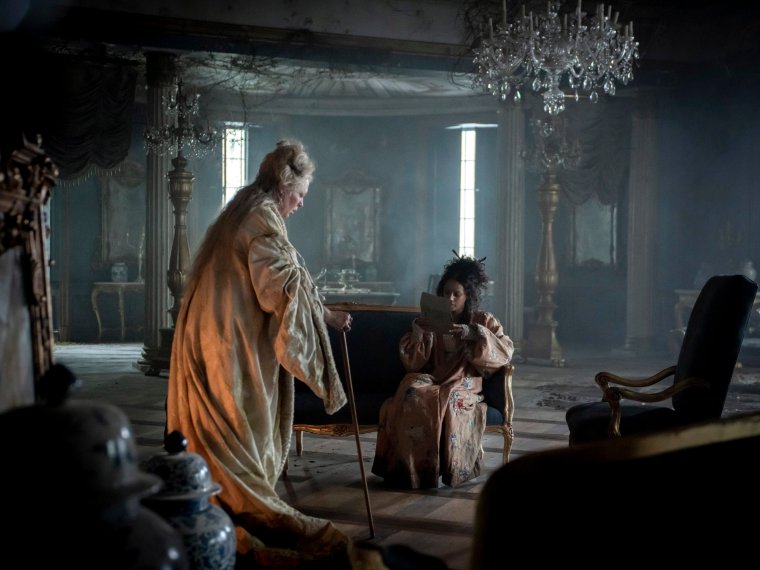Here’s a rule that I’ve come up with for anyone adapting a book. If it is the first time the story is being reworked for screen, then please do it carefully; do it in the most representative, faithful way you can. But if it has already been done twice, three, four times before: go wild. Give us your twists, your takes, your modern updates and more.
BBC One’s new adaptation of Great Expectations is the reason I’ve been forced to produce this guidance no one asked for. The six-part series stars Olivia Colman as the reclusive, Miss jilted-at-the-altar Havisham and Fionn Whitehead as Pip, whose life changes when he visits her dilapidated mansion. Actor Tom Hardy is a producer; Peaky Blinders creator Steven Knight wrote the screenplay. The drama begins on Sunday, and it’s already causing a stir.
The liberties Knight has taken include, but are not limited to, Miss Havisham being an opium addict, the liberal use of swearing, a spanking scene, and – lo and behold – Magwitch insinuating that the British Empire was perhaps not the nicest thing we’ve ever done.
Oh dear. Mess with Charles Dickens at your peril: the purists will come for you. In tepid-at-best early reviews, the show has been described as “lurid” and “unrecognisable”, with “overblown characters”, so much so that it warrants “a warning to the viewer”. Even MP and apparent Dickens enthusiast Sir John Hayes waded in, declaring it to be another example of the current penchant for either “vulgarising” or “sanitising” “the great canon of English literature”.

Much of the criticism being levelled comes down to this idea of it having been updated in order to appeal to a modern audience. This has become a dirty phrase – but since when is trying to engage new viewers a bad thing? And if we can’t have fun with a narrative that has already been done to death, what’s the point of doing it at all?
We can all agree that we didn’t need another Great Expectations adaptation. But this conversation, stoked every time there’s a new take on a much-adapted book, has not only become boring but pointless. Of course it’s better to have new stories, but Great Expectations, with its timeless exploration of love and obsession, society and class, innocence and guilt – is a bloody good book, so we’ll go on adapting it for ever.
Certain interpretations will be better than others, but one thing is for sure: there is no benefit in making one that’s exactly the same as all those that have come before it. So you might as well spice it up somehow – and yes, whisper it, think about ways you might appeal to the modern viewer.
Some of our best Dickens adaptations are the ones that have taken the story and run with it in new and exciting ways. 2019’s The Personal History of David Copperfield was a zingy, fresh reinvention of the book starring Dev Patel; Oliver! rejuvenated the gritty story of Oliver Twist with music. BBC One’s 2016 miniseries Dickensian was a lovely playful twist on the author’s work, while The Muppets Christmas Carol will go down in the history books as one of the best, most inventive retellings.
Sometimes a bit of novelty is exactly what an old story needs in order to get people to buy into it. The 1946 film is generally regarded as the best iteration of Great Expectations – but you’d be hard pressed to find someone completely new to the story who fancies sitting down to watch a black and white version of something written by an author associated with the school curriculum. (I studied Hard Times. How apt that was.)
Having watched it, I certainly don’t think Knight’s adaptation will be remembered as one of the masterpieces – it is somewhat heavy handed and an almost startlingly dark and grimy take – but I still think a lot of people will enjoy it more than they would some of its stuffy predecessors.
So Knight had every right to take creative licence; every right to intentionally try to appeal to modern viewers. Like all classics, if it has already stood the test of time for centuries, then the story is robust enough to survive some modernising, twisting and tinkering.
As for my rule: Great Expectations has been put on screen 17 times before, and there are over 400 other adaptations of Dickens’ novels out there. At this point, the author is fair game.
Great Expectations begins on Sunday at 9pm on BBC One

